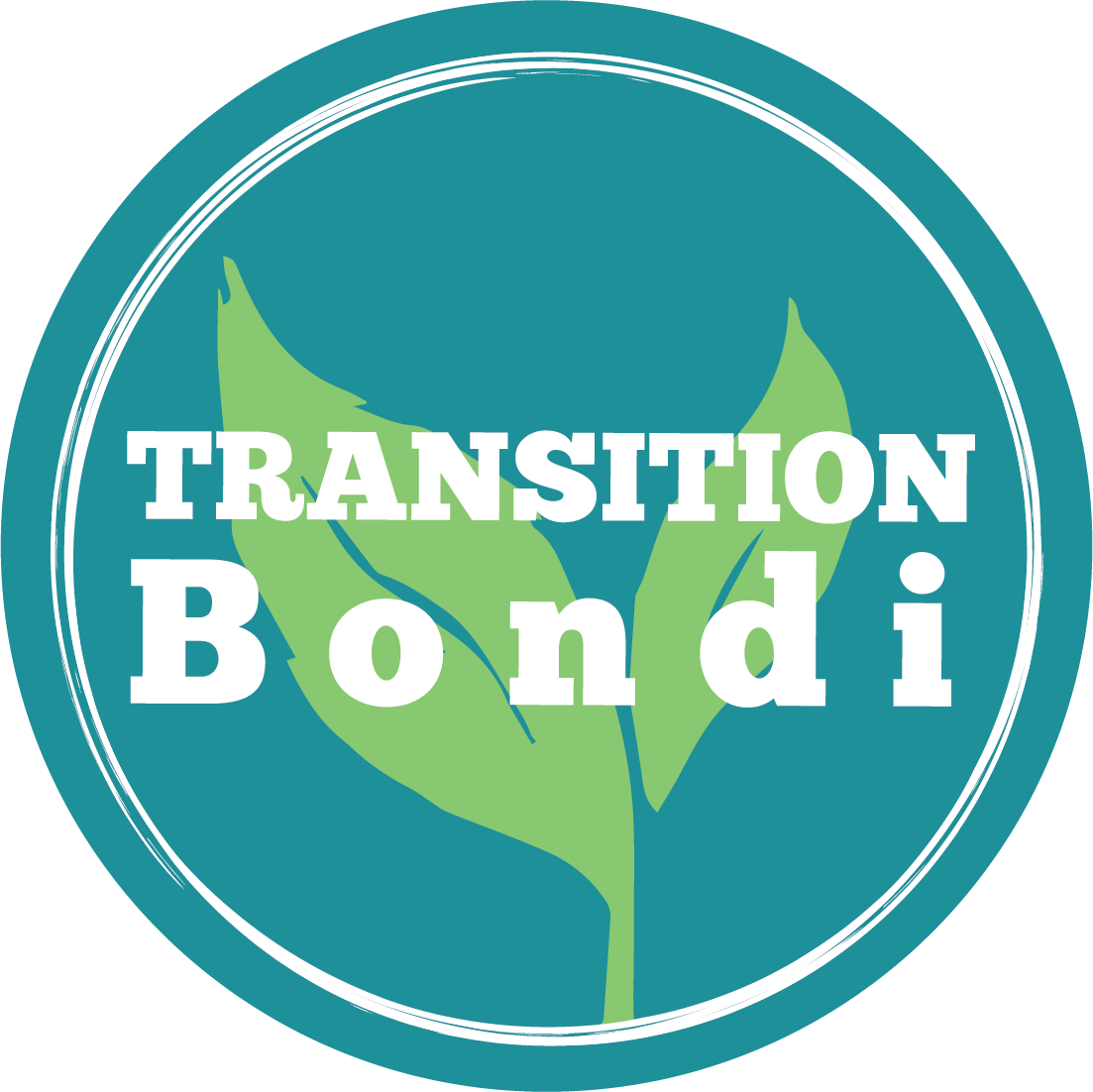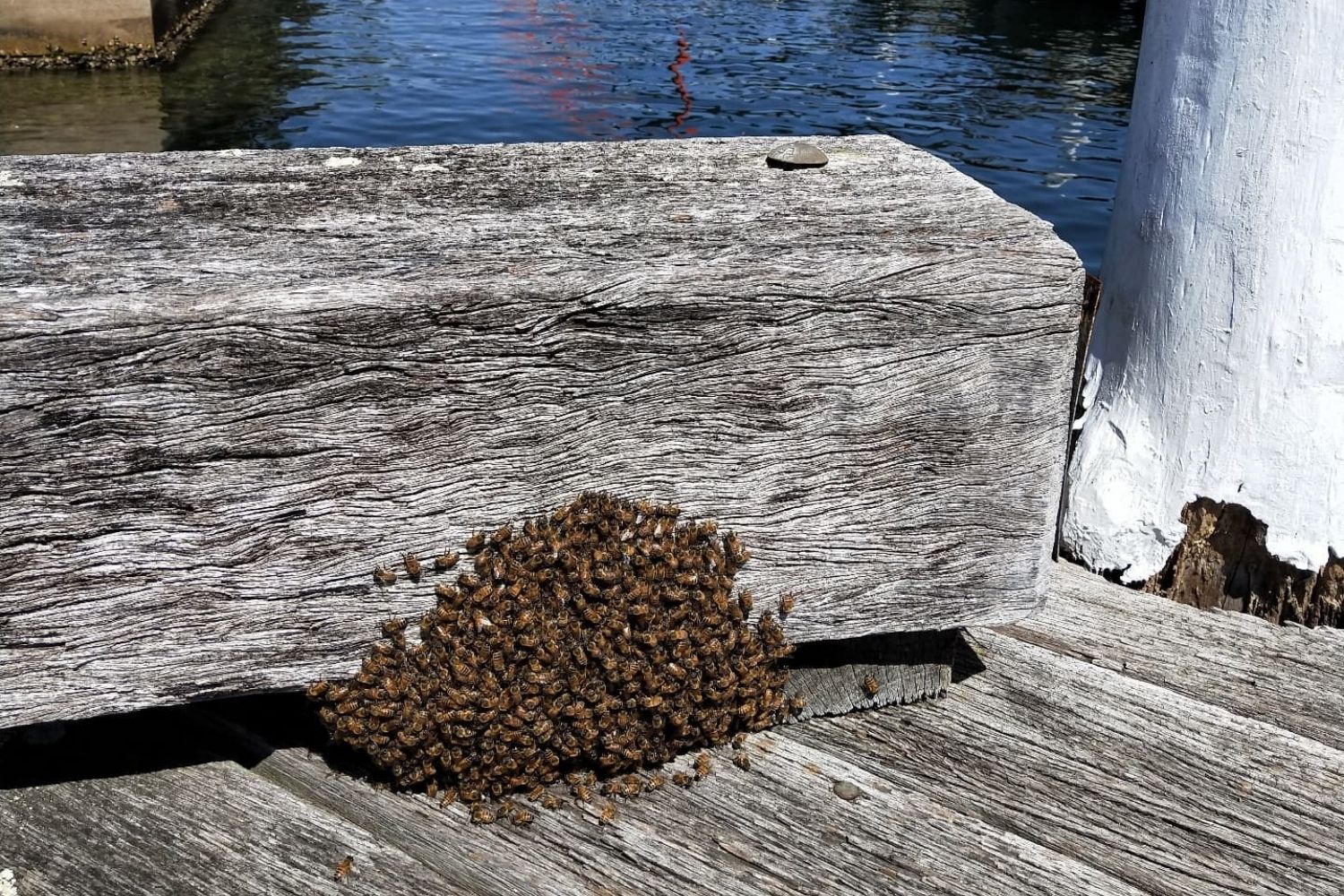The Beekeeper
Transition Bondi has two beekeepers on our team: Lance and Gloria. We met in passing in our Community Garden last week (where we have hives of both European and native bees), and an interesting story was told…
Last week in the city, a swarm had been spotted, and Gloria received a call for help, to come and relocate them (not an uncommon thing apparently). This swarm had followed its young queen to (wait for it!)….the underside of a wharf in Pyrmont! Not the easiest place to get your head around, at the best of times, and attempting to relocate the swarm became a day-long endeavour.Many interested passers-by stopped to chat, intrigued by the figure all covered in white, (with the netted head and face shield that beekeepers use when up and close to a swarm!)
Gloria told us some fascinating things about bees….
In these times when having bee-hives has become quite popular, the work of those looking after hives has increased. This is because looking after a hive needs to be done regularly especially from Spring to beginning of Autumn – it’s not a matter of ‘installing’ it and then getting on with life. Installing beehives also needs to comply with rules and regulation from the Department of Primary Industry DPI.
There are lots of responsibilities involved in beehive inspection, which includes monitoring the hive population, identifying any pest and diseases, and the possibility of swarming. (Swarming is a natural behaviour that honey bee colonies use for reproduction and expansion. And this involves the hive ‘developing’ a new queen bee – fostering one from the brood in preparation for such a departure).
This needs to be done by those who know the ways of bees. Ideally, start by joining your local bee club, sign up for a course, or learn from beekeepers before installing the beehive to get an idea of what getting a beehive would entail.
Bees are fascinating and have been admired for centuries for their social organisation and role in the life-cycle of plants, and in food production. And as we know, in this era they are endangered by pollution, disease and over-work. Interest in Native Bees has grown in Australia, as a different type of pollinator, essential to keep flowers being fertilised and producing fruits, grains, berries, nuts and seeds for ongoing food security. Without pollinators we would not survive.
As part of Australian Pollinator Week (13-21 November), Transition Bondi is holding a Native Bee-hive splitting workshop on Sunday 14th November, 2021 from 1-3pm.

